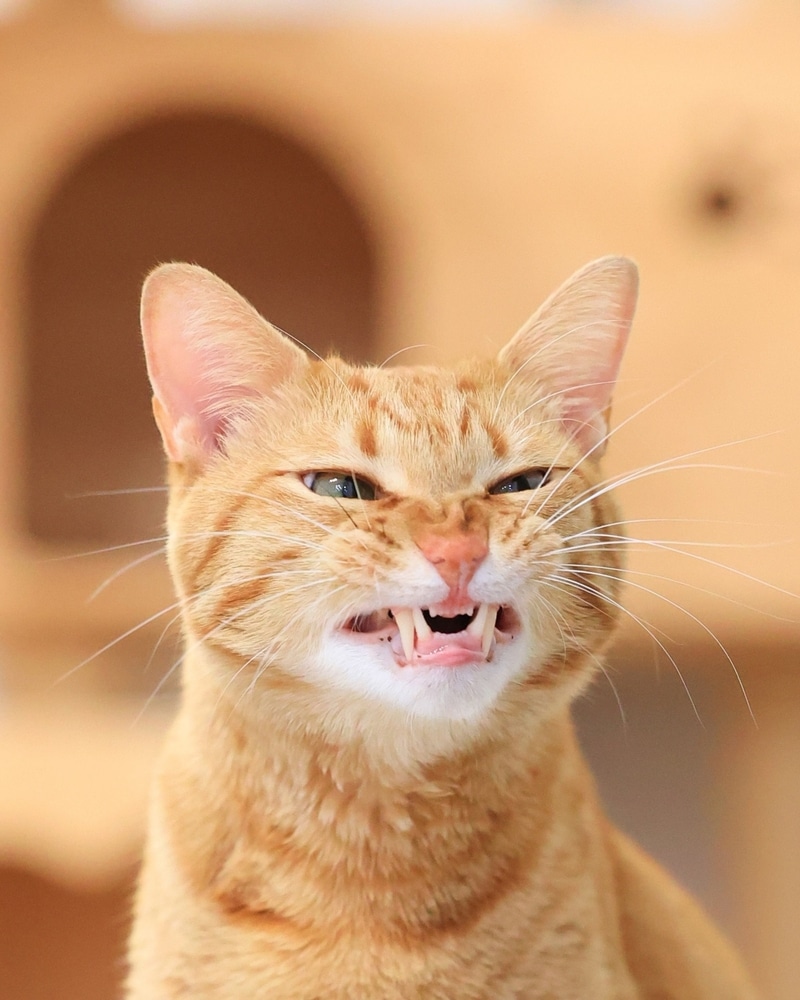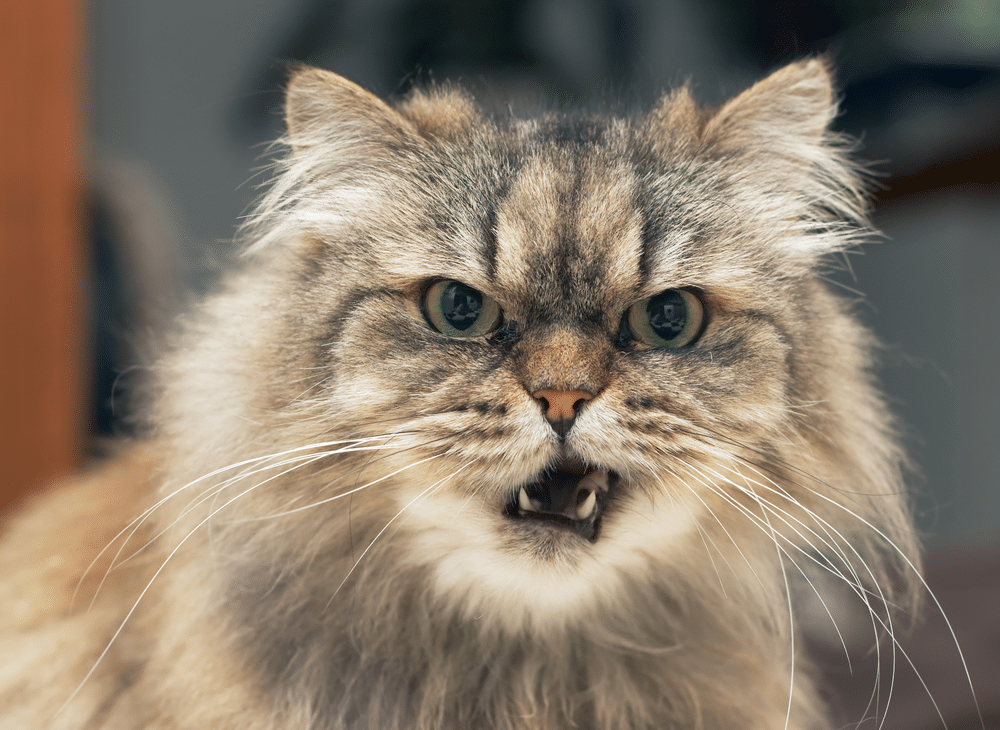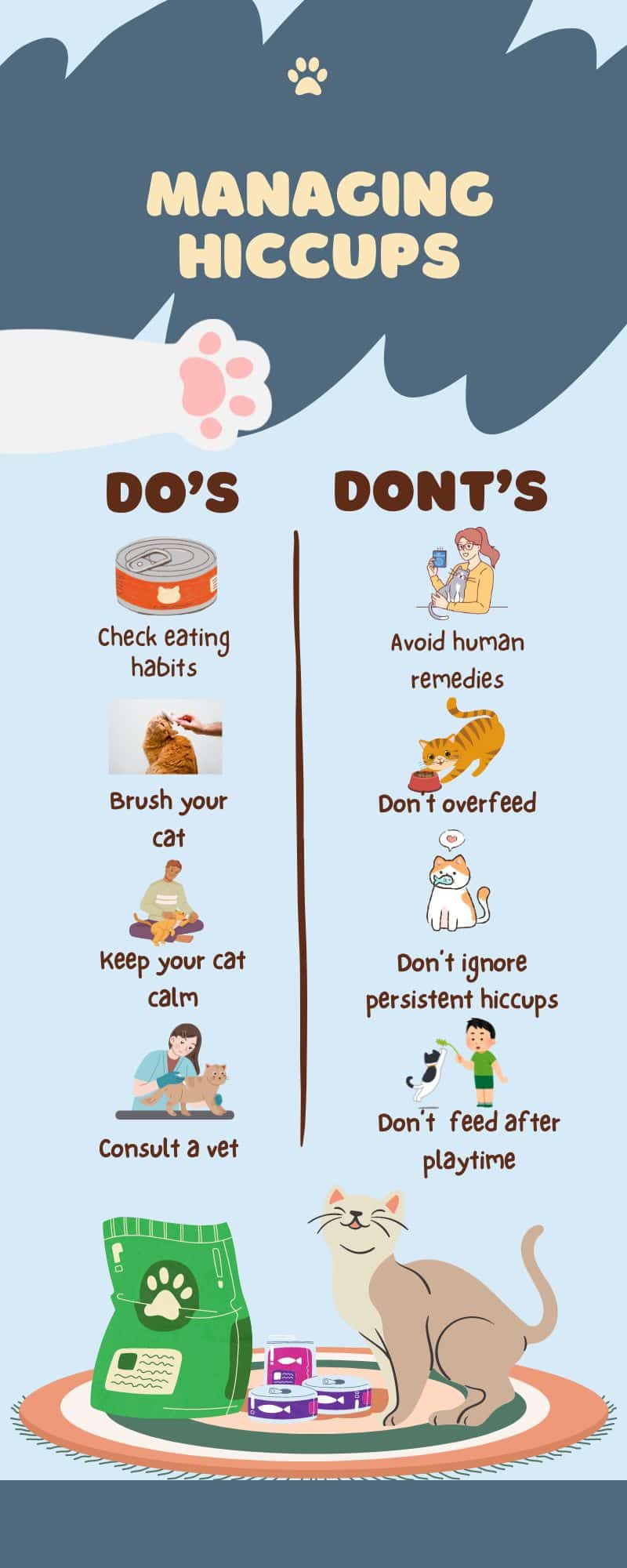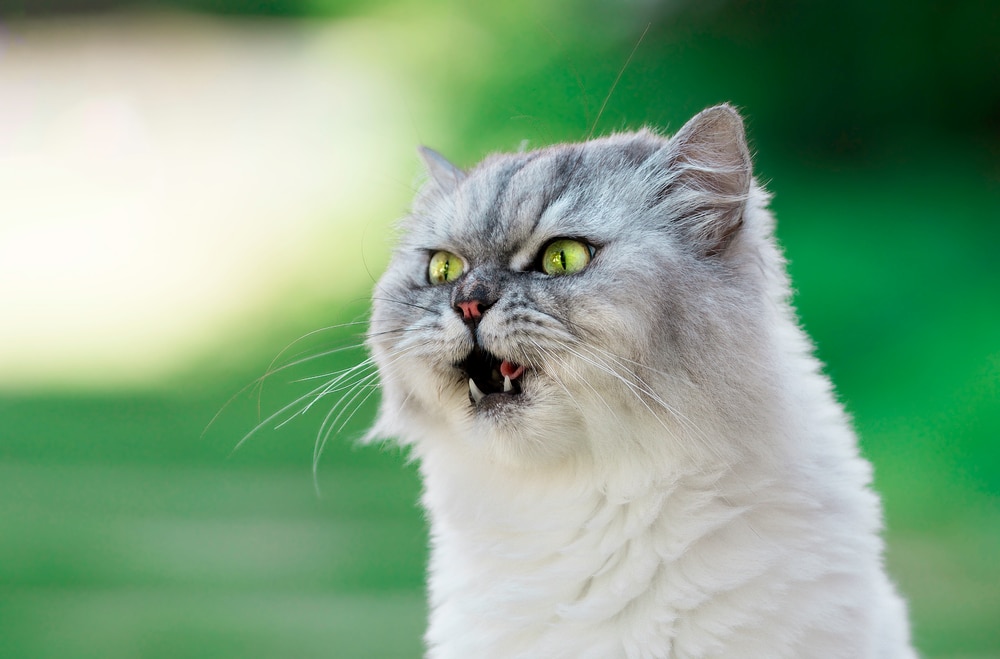Table of Contents
Calling all the pet owners, imagine your furry fellow is peacefully lounging, purring softly, when suddenly, a tiny hic interrupts the calm. Yes, cats can get hiccups, too! While it might seem surprising, those adorable little spasms are more common than you think. But what exactly causes these feline hiccups, and should you be worried? If you have just purchased a cat and are going through such a situation, don’t worry; I am here to help you. This article guide will cover the nuances and intricacies of reasons for your cats hiccup and how to help them.
What is Hiccup in Cats?

Cat hiccups sound like human hiccups and are involuntary contractions of the diaphragm, a muscle located between the chest and abdomen. These contractions cause a sudden closure of the vocal cords, producing the characteristic “hic” sound. Although hiccups are common in humans, they can also occur in animals, including cats, though they might not be as pronounced.
Common Causes of Cats Hiccup

Before we move on to the solutions for hiccups in cats, let us discuss the common causes of this discomfort in feline fellows:
- Eating too quickly: One of the most common causes of hiccups after eating is when a cat eats too fast. Eating too fast can cause ingestion of a foreign body, leading to hiccups. This is particularly common in kittens or adult cats, which are especially enthusiastic eaters.
- Drinking Water Too Fast: Just like with eating, drinking water too quickly can cause your cat to swallow air, leading to hiccups. This might happen more often if your cat is particularly thirsty or excited about a fresh food bowl of water.
- Hairballs: Cats are prone to developing hairballs due to their grooming habits. Sometimes, the presence of a foreign body in the digestive tract can irritate the diaphragm, leading to hiccups. Due to hairballs if your cat frequently grooms itself and occasionally coughs up hairballs, this could be the underlying cause.
- Gastrointestinal Issues: More rarely, hiccups can be a sign of an underlying gastrointestinal issue, such as acid reflux or an upset stomach. In these cases, the hiccups might be accompanied by other symptoms like vomiting, diarrhea, or a lack of appetite. Food allergies might also play a role, causing your cat to experience hiccups after eating.
- Stress or Anxiety: It can also lead to hiccups in cats. Changes in their environment, a new pet or family member, or any disruption to their routine can cause stress, leading to hiccups as a physical response. Pet parents should be mindful of their feline friend’s environment.
When to Be Concerned?
Okay, my dear pet owners, when you notice your cat having persistent hiccups, it’s crucial to be vigilant. Consulting a vet is essential when hiccups persist for an extended period or are accompanied by other symptoms such as coughing, difficulty breathing, or a change in behavior. Besides, heart disease could also be a rare cause of persistent hiccups, making veterinary attention essential.
Solutions for Cats Hiccup

Now that we have deeply dug into the reasons that might cause hiccups in cats, it is time to find solutions.
- Slow Down Eating: To prevent hiccups caused by eating too quickly, consider feeding your cat smaller, more frequent meals throughout the day. You can also use a slow feeder bowl, which is designed to make it more difficult for your cat to eat quickly. Another option is to spread the food on a large, flat surface to encourage slower eating.
- Monitor Water Intake: Ensure your cat has access to fresh water at all times, but monitor how quickly they drink. If your cat tends to gulp water, try offering smaller amounts at a time to reduce the likelihood of hiccups.
- Regular Grooming: Consistent brushing can help minimize the formation of hairballs, reducing the likelihood of hiccups caused by gastrointestinal irritation. Brush your cat regularly, and special hairball control treats or supplements can also help manage hairballs.
- Reduce Stress: Creating a calm and stable environment for your cat can help reduce stress-induced hiccups. Please provide them with a safe, quiet space to retreat to, and try to maintain a consistent routine. Furthermore, if your cat is particularly sensitive to changes, consider using calming sprays or diffusers that release pheromones to help soothe them.
- Visit the Vet: If hiccups persist or are accompanied by other concerning symptoms, a visit to the vet is essential. Your veterinarian can perform a thorough examination to rule out any serious underlying conditions and provide appropriate treatment if necessary. How to tell if your cat has hiccups? Observe their behavior and the frequency of the hiccups; consulting a vet might be necessary if they persist.
Final Words
Coming to the end of this discussion, this article covered a common question: Why does my cat have hiccups? Hiccups in cats are generally not a cause for alarm and often resolve on their own. By understanding the common causes and taking preventive measures, you can help your feline friend avoid discomfort. However, if your little fellow gets hiccups and they persist or are accompanied by other symptoms, seeking professional advice is crucial to ensure your cat’s health and well-being.
A Guide to Happy Fellow!

